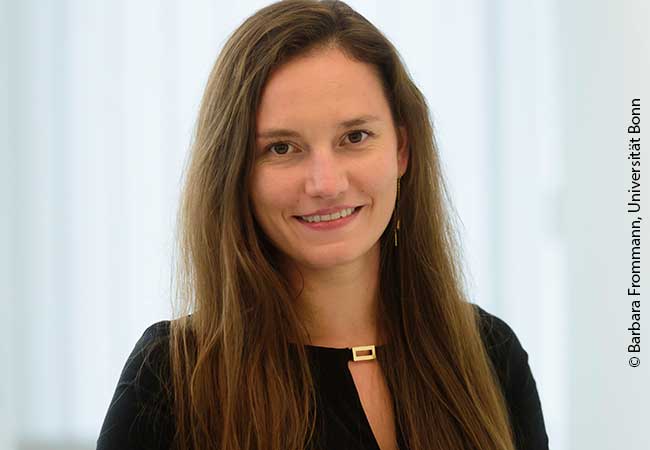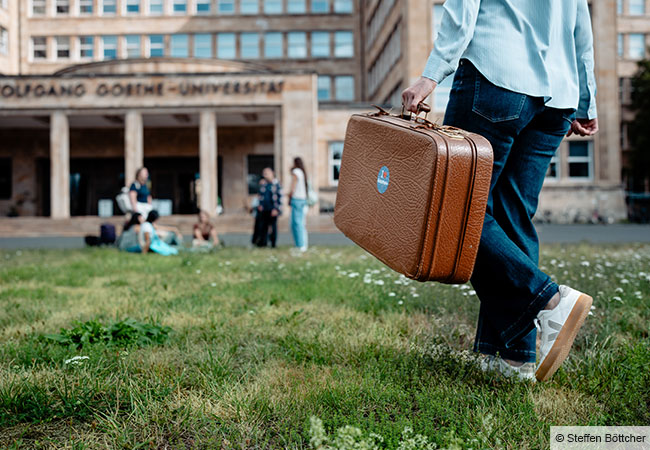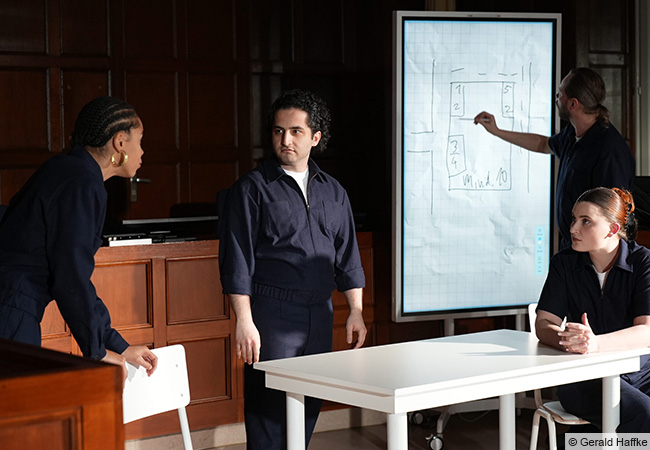
The course for organ health is set in the early embryo. This year’s laureate has shown that specialized immune cells from the yolk sac accompany organ development and contribute to maintaining their health throughout life. For Elvira Mass, impaired function of these immune cells might cause many diseases.
Developmental biologist Professor Elvira Mass, Ph.D. from the Life and Medical Sciences Institute (LIMES) at the University of Bonn, receives the 2021 Paul Ehrlich and Ludwig Darmstaedter Prize for Young Researchers, which is endowed with €60,000. The award ceremony in Paulskirche, which is traditionally held on March 14th, Paul Ehrlich’s birthday, has been canceled this year due to the coronavirus pandemic. Elvira Mass will be honored next year together with the award winners of 2022.
For organs to stay healthy and functional, they must be constantly surveilled for abnormalities. Until a few years ago, it was believed that this task is performed by immune cells originating from the bone marrow. In a series of elegant genetic labelling experiments, Mass has shown that these cells are mainly yolk sac-derived progenitor cells that migrate to the developing organs, where they immediately differentiate and self-maintain for a lifetime. The reason for their longevity is still a mystery. These immune cells are referred to as tissue-resident macrophages and belong to our innate immune system. Their primary job is to scavenge anything that does not belong to a healthy organ. However, they also produce a broad range of bioactive molecules and growth factors, ensuring that tissues are not only ‘tidy’ but grow, develop, and function.
„The special achievement of Elvira Mass is to have contributed to an important change in perspective when looking at the function of organs,“ writes the Scientific Council, chaired by Professor Thomas Boehm, Director at the Max Planck Institute for Immunobiology and Epigenetics in Freiburg, in substantiating its decision. “In order to understand how organs develop and what keeps them healthy, one no longer only looks at the bone marrow, but also at the yolk sac and thus at a completely different population of macrophages. This observation has important implications for medicine, because organ-specific defects might be associated with malfunctioning tissue-resident macrophages originally derived from the yolk sac”.
Mass has provided evidence for the health-promoting function of resident macrophages in the mouse brain. Her attempt to manipulate microglia, as the brain-specific macrophages are called, were stimulated by the findings in patients suffering from a rare form of cancer called histiocytosis. This cancer arises from mutated macrophages, which multiply out of control. Many patients suffering from histiocytoses eventually develop neurodegenerative symptoms or behavioural deficits. Mass introduced the mutation typical for histiocytosis specifically into yolk sac-derived tissue-resident macrophages of mice and followed the development of the animals. She found that the mutated microglia cells no longer carried out their traditional tasks but instead attacked and eliminated neurons in their vicinity. Eventually, this led to paralysis demonstrating that mutated microglia can cause neurodegeneration in mice.
With funding recently awarded by the European Research Council, Mass will investigate which environmental factors change the epigenetic imprinting of the yolk sac-derived tissue-resident macrophages and how these changes affect the health of organs. To this end, she will, among other things, examine the influence of nanoplastics on macrophages. Particles that are smaller than 500 nanometers enter the embryo’s blood via the placenta and could potentially damage the supporting function of the tissue-resident macrophages.
Short biography of Professor Dr. Elvira Mass
Elvira Mass (34) studied biology at the University of Bonn and did her Ph.D thesis at the Life and Medical Sciences Institute (LIMES) in Bonn. In 2014, she moved to Frederic Geissmann’s laboratory at King’s College in London and followed him a few months later to the Memorial Sloan-Kettering Cancer Center in New York. From there she returned to the LIMES Institute in 2017 as a group leader. In 2019, she became W2 Professor for „Integrated Immunology“ at the University of Erlangen-Nuernberg. In 2020, she switched to a W2 / W3 professorship at the LIMES Institute. Mass has received several awards, including the Heinz Maier Leibnitz Prize in 2020, which is considered the most important award for young scientists in Germany.
Paul Ehrlich and Ludwig Darmstaedter Prize for Young Researchers
The Paul Ehrlich and Ludwig Darmstaedter Prize for Young Researchers, awarded for the first time in 2006, is conferred once a year by the Paul Ehrlich Foundation on a young investigator working in Germany for his or her outstanding achievements in the field of biomedical research. The prize money must be used for research purposes. University faculty members and leading scientists at German research institutions are eligible for nomination. The selection of the prizewinner is made by the Scientific Council on a proposal by the eight-person selection committee.
The Paul Ehrlich Foundation
The Paul Ehrlich Foundation is a legally dependent foundation which is managed in a fiduciary capacity by the Association of Friends and Sponsors of the Goethe University, Frankfurt. The Honorary Chairman of the Foundation, which was established by Hedwig Ehrlich in 1929, is Professor Dr. Katja Becker, president of the German Research Foundation, who also appoints the elected members of the Scientific Council and the Board of Trustees. The Chairman of the Scientific Council is Professor Thomas Boehm, Director at the Max Planck Institute of Immunobiology and Epigenetics in Freiburg, the Chair of the Board of Trustees is Professor Dr. Jochen Maas, Head of Research and Development and Member of the Management Board, Sanofi-Aventis Deutschland GmbH. Professor Wilhelm Bender, in his function as Chair of the Association of Friends and Sponsors of the Goethe University, is Member of the Scientific Council. The President of the Goethe University is at the same time a member of the Board of Trustees.
Further information
You can obtain selected publications, the list of publications and a photograph of the prizewinner from Dr. Hildegard Kaulen, phone: +49 (0) 6122/52718, e-mail: h.k@kaulen-wissenschaft.de and at www.paul-ehrlich-stiftung.de.







